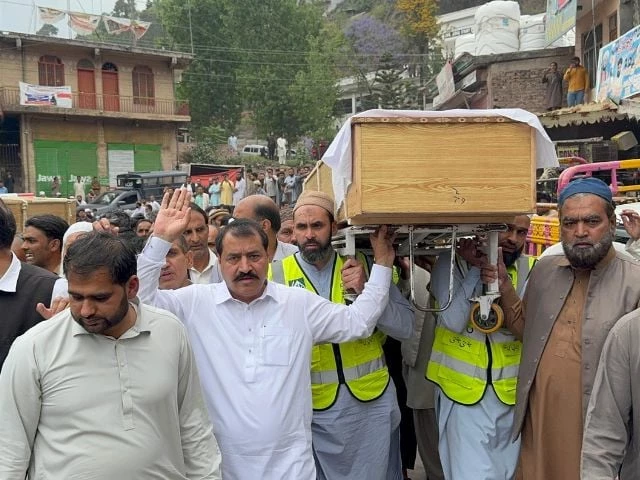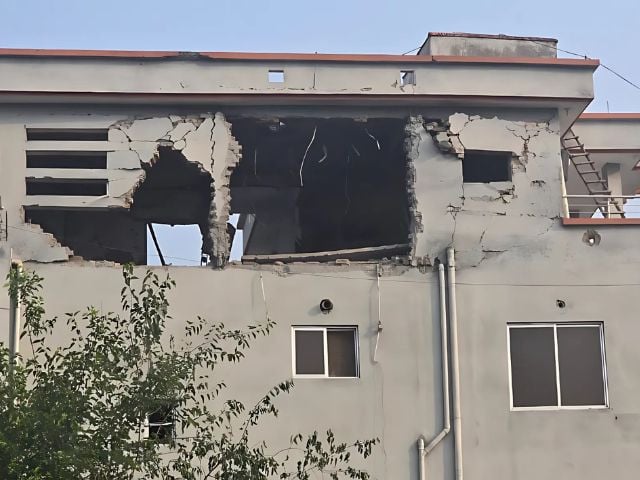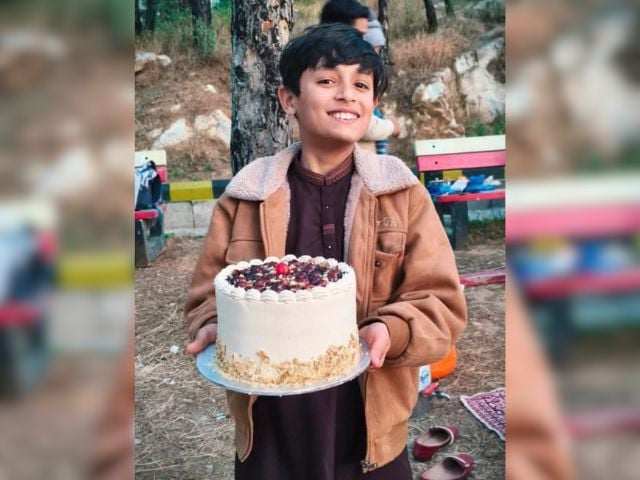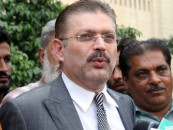Indian missile strike: grief and resilience in heart of AJK
The region, already familiar with the sounds of conflict, now bore the heavy silence of collective mourning.

A cloud of sorrow descended over Azad Jammu and Kashmir on Wednesday night as Indian missile strikes tore through the peace of Muzaffarabad and Kotli, leaving a trail of grief, rubble, and mourning.
In the aftermath, funeral prayers echoed across stadiums and streets, uniting communities in shared loss and defiance.
In Muzaffarabad, the KH Khurshid Stadium became a ground not of sport, but of sorrow. There, under an overcast sky and tearful prayers, the caretaker of Masjid Bilal in Shawai Nala and two of his assistants were bid farewell by hundreds of mourners.

Their final journey carried them to Neelum and Rawalakot, where they were laid to rest with dignity and love.
In Kotli, tragedy struck a family with heartbreaking cruelty. Nineteen-year-old Misbah Musa and her twelve-year-old brother Umar Musa were killed in their home during the missile assault.
Their mother, who had been raising them alone while their father worked abroad, stood shattered as thousands gathered to offer final prayers and stand in solemn solidarity.

What began as a funeral quickly turned into a thunderous protest. With grief transforming into fury, the crowd—led by Azad Jammu and Kashmir’s Minister for Rehabilitation, Javed Budhanvi—marched in an impassioned anti-India rally. Chants pierced the silence, calling out Indian aggression and expressing unwavering support for the Pakistan Army.
At the rally, Minister Budhanvi raised a question that echoed in every parent’s heart:
"What did India gain by killing two innocent children? What justification can there be for tearing a family apart like this?"
That same night, in Fatehpur Thakiala, another shell claimed the life of a woman. Her funeral the next day was marked by hundreds of mourners who gathered to honor her memory.
The region, already familiar with the sounds of conflict, now bore the heavy silence of collective mourning.
Clashes along the Line of Control escalated in the wake of the attacks. Fierce exchanges between Indian and Pakistani forces led to five more lives lost.
By dawn, the toll had reached ten dead and thirteen injured across Azad Kashmir. Among the dead were civilians from Rawalakot and Haveli, caught in the cruel crossfire of escalating tensions.
Former President Sardar Masood Khan visited the site of the attacks at Masjid Bilal, offering words of tribute and comfort. He lauded the resilience and courage of the people, calling them "symbols of bravery in the face of unprovoked violence."
In response to the rising threat, all educational institutions across AJK were closed, and Prime Minister Anwarul Haq announced the creation of a central emergency response center—preparing for the possibility of broader conflict and vowing swift support for the vulnerable communities near the border.
Azad Kashmir has seen many storms. But through tears and smoke, the spirit of its people remains unbroken—grieving their losses, honoring their martyrs, and standing defiantly in the face of aggression.





















COMMENTS
Comments are moderated and generally will be posted if they are on-topic and not abusive.
For more information, please see our Comments FAQ